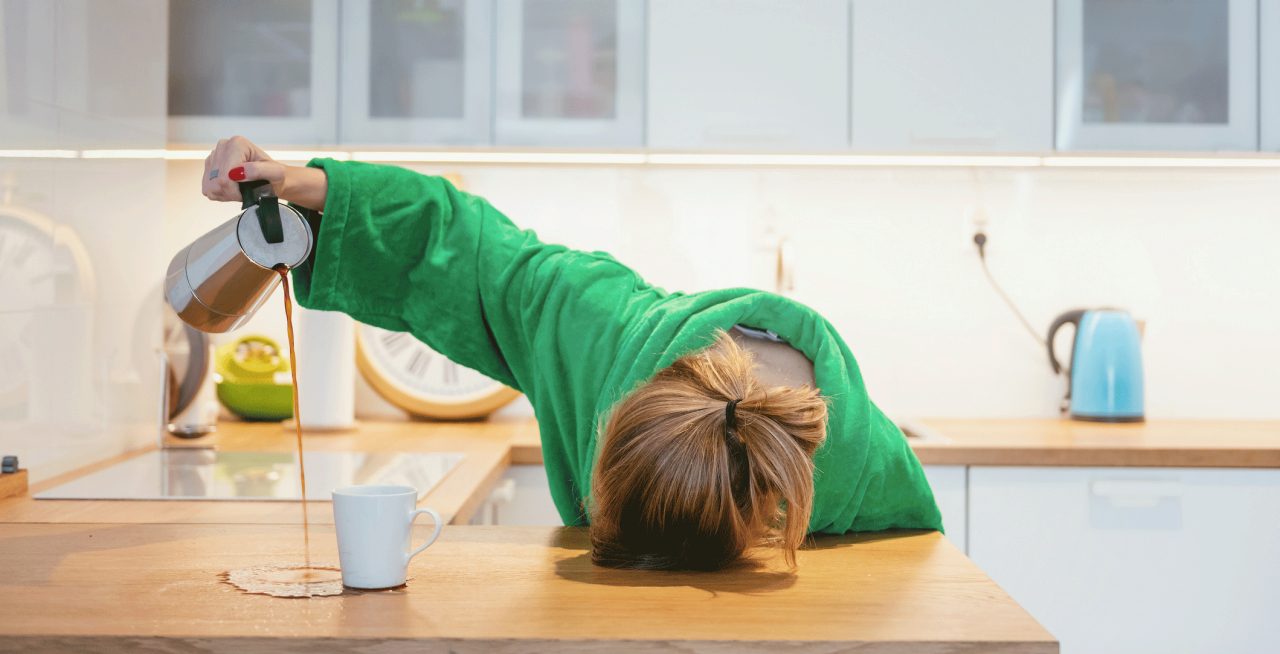Coffee Won’t Help You Make Up for Lost Sleep

There are plenty of reasons to enjoy your coffee, and it may be good for your health, but it’s no substitute for a full night of sleep.
You had a bad night. So, you add an extra cup of coffee (or even two) to your morning routine to get through the day.
It’s true that the caffeine in coffee increases your energy, reduces sleepiness, and may even boost your mood.
It also may be good for your health. But it’s not a substitute for a full night of sleep, according to one study, if you have to perform a series of tasks in a specific order. You may feel alert but not be up to a multistep operation.
YOU MIGHT ALSO LIKE: Maximize the Health Benefits of Coffee
In the study, at Michigan State University, 276 volunteers completed two tasks in the evening. Both were standard tasks in psychology research. One required them to be alert, picking out a cue from many cues. The other required them to perform a series of tasks without skipping one or going back.
Half of the volunteers went home to sleep, and the other half stayed awake overnight in the lab. In the morning, the participants who slept returned to the lab, and all of them consumed a capsule that contained either 200 mg of caffeine or placebo. Then they repeated the tasks.
The sleep-deprived group showed the effects: If they didn’t get any caffeine, they didn’t do as well on either task as they had before or match the performance of the rested volunteers.
Those who did get the caffeine boost did almost as well on the first task — but poorly on the second.
This study shows how using coffee to make up for a lack of sleep might run into trouble. If you feel alert despite not sleeping, coffee can give you give you a false sense of confidence, and you may take on a multistep task, stumble, and make a serious mistake.
Over time, consistently lacking adequate sleep affects your thinking and can eventually affect your immunity.
Moderate amounts of coffee may be good for you
If you’re not using coffee to substitute for sleep, it may be a great idea. Caffeine may cut the risk of many illnesses, including Parkinson’s disease, heart disease, type 2 diabetes, gallstones, depression, suicide, cirrhosis, liver cancer, melanoma, and prostate cancer. It might even extend your life.
There is also evidence that it can slow age-related cognitive decline and even boost the performance of people who have become impaired.
Some rules of thumb for better sleep
- Stop drinking caffeine by the afternoon. It can affect your sleep up to six hours before bedtime.
- Increase the bright light you get during the day.
- Stick to a regular bedtime and wake-up time. This will improve your sleep quality.
- Don’t drink alcohol at night.
- Avoid snacks after dinner.
- Exercise regularly but not too late in the evening.
- Make sure your bedroom temperature is comfortable.
Sleep is essential. Don’t do anything too complex with multiple steps if you’re short of sleep, even if your coffee made you feel alert.
But go ahead and enjoy coffee if you can still get plenty of sleep.
Updated:
October 13, 2021
Reviewed By:
Janet O’Dell, RN